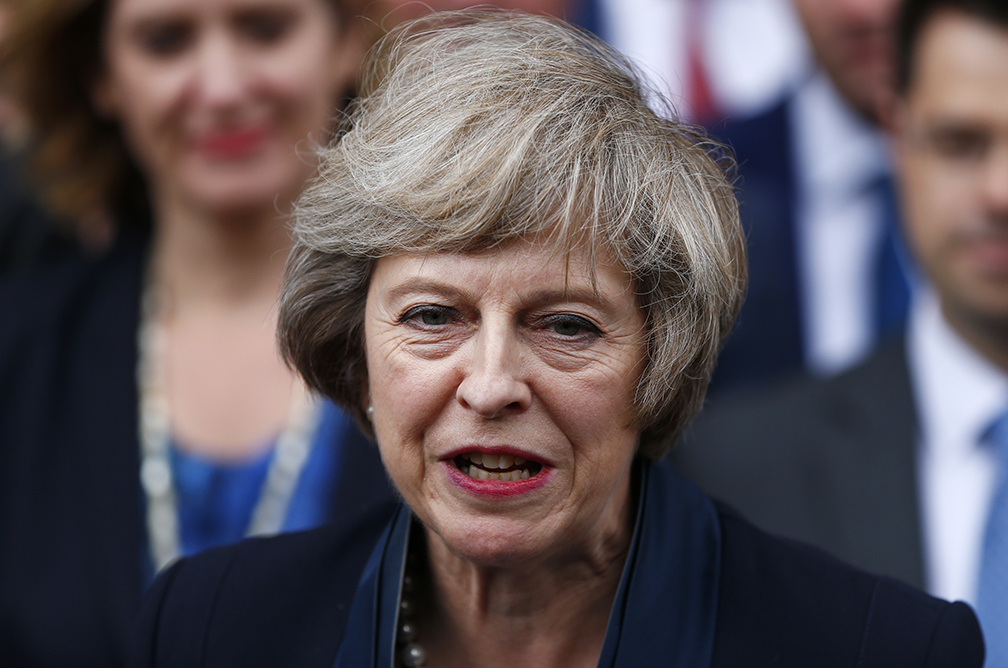 The era of “fact-free politics” just met its match, in that “facts are stubborn.”
The era of “fact-free politics” just met its match, in that “facts are stubborn.”
Populist politicians can distort much of the truth with little or no political consequences, but the British high court’s ruling on November 3 proves that for Nigel Farage, Boris Johnson, and Theresa May, ignoring the reality of the United Kingdom’s constitutional order turned out to be a bridge too far.
British Prime Minister Theresa May’s cabinet keeps making the point that the Brexit referendum was an exercise in grassroots democracy unprecedented in British history. But the reason for this lack of precedents happens to defeat their argument: the United Kingdom is not an Athenian, but a parliamentary democracy.
The problem lies not only with “fact-free,” but also with gutless leadership. In giving their blessings to a referendum (by way of the European Union Referendum Act), British members of Parliament—the majority of whom opposed the idea of Brexit, yet also balked at deciding on the matter—chose to devolve the decision to the British public. Some have applauded the move as Parliament’s wise recognition that such a momentous choice should be left to the people: except that the United Kingdom happens to be the wrong country in which to make this argument. Ultimately, Parliament in December 2015 attempted to forfeit its constitutional responsibilities.
It took a judicial decision to remind the executive branch that it doesn’t get to decide the extent of its mandate—or to engineer its own resignation from parliamentary duties. It is now clear that May’s approach to Brexit amounted to a soft coup. Unthinkably, the coup came from its proposed victims—the MPs themselves, as though they had now turned into latter-day Guy Fawkes, and proposed to blow up their own house.
The fact that the United Kingdom’s constitutional order just dodged a bullet also provides a “smoking gun”: the original sin lies in the absence of a written constitution in the country. This oddity is not much of a problem as long as all branches of government respect precedent and take responsibility for doing so. But the problem is that a non-existent constitution can hardly assert itself when political leaders deliberately shirk the constitutional order; and when the public turns out to be woefully ill-informed about it.
Indeed, it is ironic that the allegedly “tyrannical” European Union, in the end, was among the stakeholders that helped the United Kingdom avoid a self-inflicted coup. Article 50 of the Lisbon Treaty itself requires that it be triggered “in accordance with a member state’s constitutional requirements.” In other words, Article 50 might just have ensured that it won’t be triggered.
At the very least, it won’t be triggered in March 2017. It is true that Parliament might yet (some say surely will) approve Brexit. But—barring a judicial review on appeal—we now know that Brexit, if it ever comes about, will likely be “soft” rather than “hard”; that it can’t possibly happen by early 2019 (since the two-year countdown delineated by Article 50 will now be delayed); and that it won’t be unconstitutional.
All hail the House of Commons: AD 1341 to present, instead of AD 1341-June 23, 2016.
Erwan Lagadec is a nonresident senior fellow at the Atlantic Council’s Brent Scowcroft Center on International Security.
Image: Theresa May speaks to reporters outside the Houses of Parliament in Westminster, central London, on July 11 after being confirmed as the leader of the Conservative Party and the United Kingdom’s next prime minister. (Reuters/Neil Hall)
